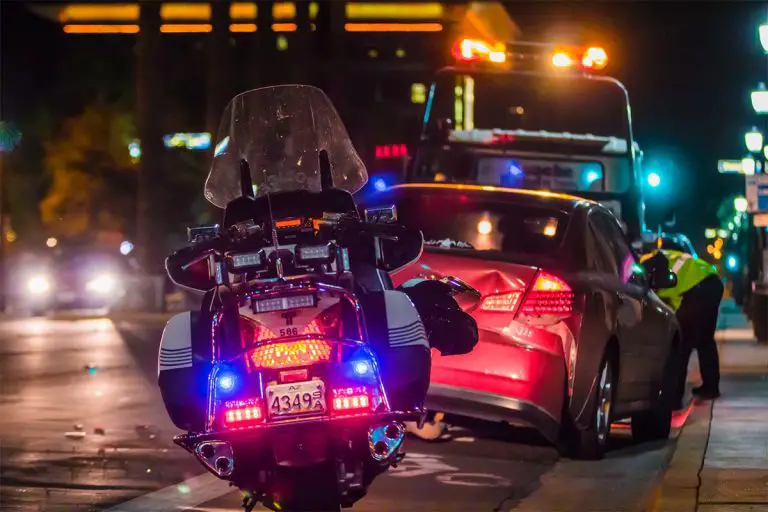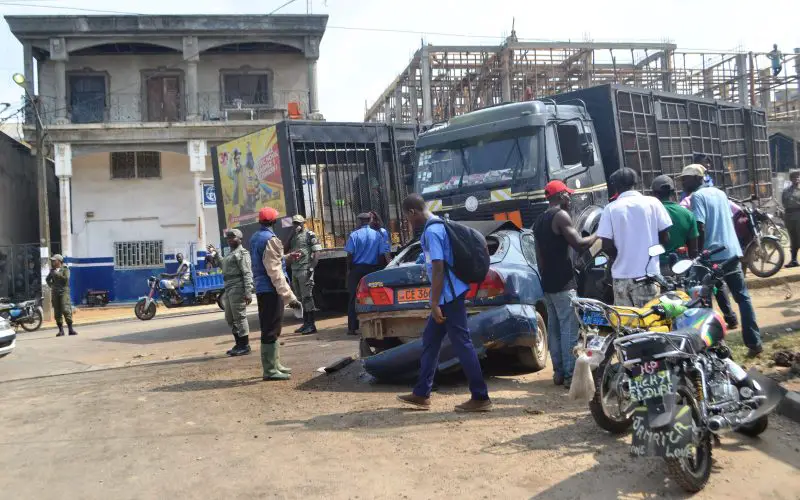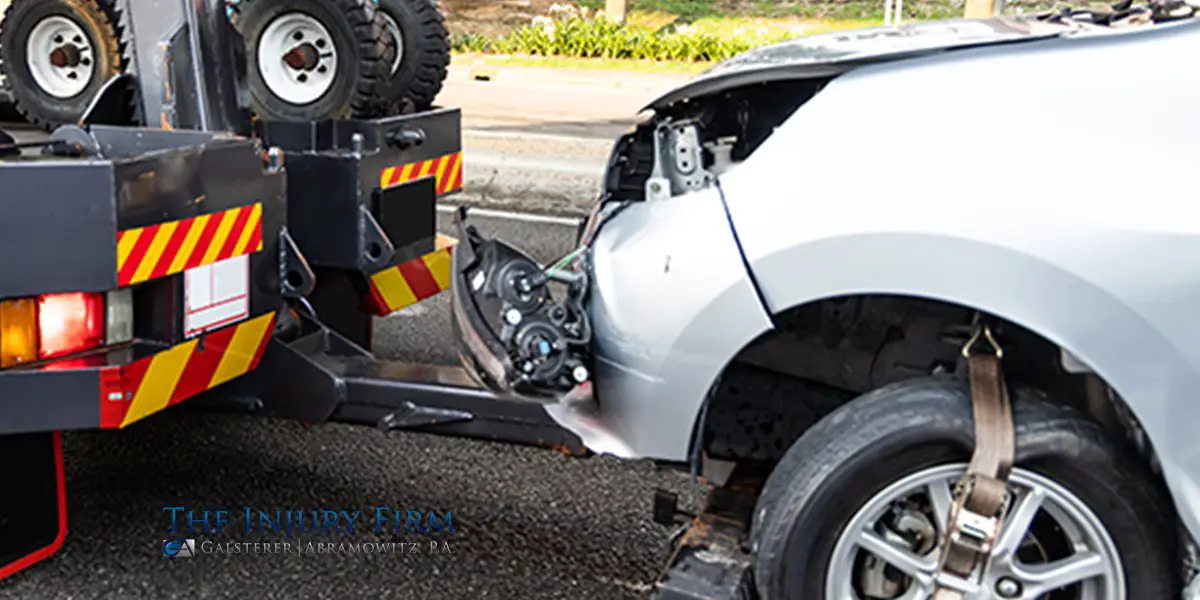What Should I Do At The Scene Of The Accident
Being in an accident can be very stressful. Learn what steps you need to take after an accident now.
- Check to see if anyone was hurt
- Move your car to a safe location, but do not leave the scene
- Do not admit fault or reveal your policy limits
- Contact the police. They’ll send an officer if necessary
- Exchange information with those involved
- If your car isn’t drivable, request roadside assistance
Things You Need To Do After A Car Accident
Over six million car accidents occur each year in the United States. Fortunately, most of them involve only property damage damage to the vehicle as opposed to the occupants. But one in three accidents involve personal injury to the driver or passengers and out of that number, two out of every ten accidents lead to fatal injuries.
If you are involved in an automobile accident, there are certain things you can do to protect yourself and your interests. The following is a list of the top ten things you should do if you are in an automobile accident:
1. STOP. Never drive away from the scene of an accident, even a minor one.
2. PROTECT THE SCENE. You can prevent further accidents by setting up flares, or keeping your flashers on. If it is dark and your lights dont work, you should have a flashlight to keep you safe while you wait in your disabled car or by the side of the road.
3. . Even if there are no serious injuries, it is a good idea to call the police. You may need a police report to file a claim with your insurance company, even if it is just to make a claim for damage to your vehicle. The vehicles involved in the accident should remain where they are, unless they interfere with traffic.
If All Else Fails Look To Your Insurer: When To File A Claim To Your Own Carrier
Even if you’re not at fault, you can make a claim with your insurance company for payment of damages and injuries — if you have the right coverages.
If you have collision insurance, file a claim with your own carrier. It will pay for the cost of repairs or total loss of your vehicle. If you take this approach, you will have to pay your collision deductible toward repairs. However, you may get that money back if your insurer is able to settle with the other driver’s insurance company.
If it turns out the other driver is uninsured and you have uninsured motorist coverage property damage , you can make a claim for your vehicles damage. There is normally no deductible for UMPD claims.
Also Check: Is Car Warranty Worth It
Contact An Experienced Car Accident Attorney For Help
If your teenage child has been in a car accident, it is crucial for you as the parent to protect your rights and defend your claim for you and your child. Being able to show that your childs driving was not entirely to blame for the accident will make a huge difference, not only to your financial liability but also in your childs continued right to drive.
Understanding Survival Traits And Human Fight Or Flight Physiology During And After A Car Accident

When you are driving or are a passenger in a car, the car and your body have kinetic energy.
When a sudden stop occurs, the energy from your movement is transferred to the brakes to help you stop quickly. In a sudden car crash, this kinetic energy is released and impacts the body, which can cause injury and pain.
Often times, people will feel an extreme sense of urgency take over their body giving them the ability to react quickly to danger.
Or after a collision, you might walk away pain-free claiming you haven’t suffered any injuries.
Many patients report car accident injuries arising 2 to 3 days after the incident and often leave a crash reporting no injuries.
It’s also common for people to describe a car crash in slow motion, know as slow motion perception.
Read Also: How To Remove Scuff Marks From Car Door Panels
Does Filing A Police Report Mean You Need To File An Insurance Claim
Filing a traffic accident police report does not mean that you are required to file a car insurance claim for the accident. The police report is the record of the accident, and it will outline the details of what occurred. It can also help protect you because you dont know what the other driver may do or say after the accident.
Determine What Insurance Coverage Would Apply
How the insurance claims process shakes out for you after a car accident depends on who was at fault and on the types of coverage you and the other driver have. Assuming the other driver was at fault, heres how the coverages would work.
Your and your passengers expenses
-
Your vehicle: The other drivers property damage liability coverage will pay for repairs up to the policys limit.
-
Your medical bills: These would be covered up to the limits of the other drivers bodily injury liability coverage, which is required in most states. In the 12 no-fault states, your own personal injury protection would come into play.
» MORE: Personal injury protection and no-fault insurance
If the other driver didnt have insurance, or didnt have enough coverage to pay your bills, uninsured or underinsured motorist coverages would pay out. Uninsured motorist coverage is required in 21 states and the District of Columbia, and some of those states also require underinsured motorist coverage.
The other drivers expenses
-
Their car: Collision coverage will pay for repairs up to the vehicles actual cash value, minus a deductible. Generally, this coverage is optional, unless youre financing or leasing.
-
Their own injuries: The medical payments coverage, or MedPay, part of their policy would work in tandem with health insurance coverage.
Optional coverages that can help either driver
Don’t Miss: How To Get Rid Of Spiders In Car
How Do I File An Insurance Claim After An Accident
Collisions can be stressful, and it can be difficult to know what to do or how to file a claim after a car accident. Usually, the process is pretty clear-cut:
To file a claim, just give a call to your insurance company. Theyll typically walk you through the process and ask you for all the aforementioned information. Once your claim is filed, a claim representative will contact you to go over your claim and the process to follow. Theyll review your claim and work with you to accurately evaluate your claim. Finally, theyll assess your claim and try to complete it as quickly as possible.
If you want to learn more about how to file a claim after an accident with American Family Insurance, head to our claims overview page.
Do Most Cases Settle After A Deposition
The threat of a deposition is daunting, to say the least, unless you’re used to legal proceedings. You also have a lot of concerns about how to psychologically and emotionally plan for a deposition.
So, do you think your deposition would lead to a case settlement outside of court? Yes, it is possible. The majority of depositions are used as leverage to reach an agreement before a case goes to trial especially in a car accident case. A deposition may be used as evidence in court, but the aim is typically to reach an agreement. Depending on which side of a case you’re on and how the talks go, this may be good or bad news.
The question you really want to know the answer to, whether you’re the defendant or the complainant, is what is the point of a deposition in a car accident case. What is the end result? What happens afterward? These and other issues are addressed further down.
To begin, let’s define a deposition in order to alleviate the fear of the unknown. A deposition is usually required after a case is filed but before it is taken to trial. It’s simply an out-of-court meeting held during the discovery stage of the pre-trial process. It’s similar to a structured interview, except the interviewee is sworn to tell the truth.
This transcription is generally used as evidence in litigation. When this point comes to fruition, there are three possible outcomes to the deposition relating to the evidence:
Read Also: How To Remove Hard Water Stains From Car
What Happens To Vehicles After An Accident
What you would do after a minor accident is drive home after exchanging information and/or talking to the police, wait for the insurance adjuster to appraise the damage, and take your vehicle to the shop. If your automobile is undrivable, though, youll need to get it towed. And if its completely totaled, you may have to scramble to find new transportation.
What Are The Benefits Of Filing A Police Report
Here are some of the benefits of filing a police report after a car accident :
- Reporting : You will have an accurate account of the car accident details. You will have a copy of your car accident police report form.
- Legal Issues : You are protected if legal issues arise.
- Proves Fault : It can help prove fault, and prove you are not at fault in an accident.
- Protection : It helps protect you from a scam or insurance fraud.
- Law : You may be legally required to file a car accident police report. Dont leave anything to chance.
- Peace Of Mind : It provides you with peace of mind in knowing you did everything you could.
Don’t Miss: Cancelling Geico Insurance
What To Do After A Car Accident
Joshua Taylor, Car Insurance WriterJul 27, 2021
The most important things to do after a car accident are to stay calm, call 911 if anyone is seriously injured and keep everyone away from oncoming traffic. Once everyone is safe, you should gather information for an insurance claim, including the other drivers insurance information, witness contact details, and photos and notes related to the accident.
Three Sources That Pay For Your Car Repairs After An Accident:

Unfortunately, insurance companies often take days or weeks to decide whether to accept fault in the accident. Therefore, your car may not be repaired in a timely manner.
You pay any deductible up front, which will be returned to you if your insurance company is repaid by the defendants insurance company.
You may also be responsible for any rental car fees during the time your car is being repaired .
Depending on the type of accident, you may be responsible for paying a deductible.
Also Check: How Do I Get My Car Title In Florida
What Happens In A Car Accident In Pennsylvania
Complete Pennsylvania accident reports and news. When someone is injured in an accident in Pennsylvania, it is important to gather information about what happens next. Being injured in a serious accident is always a shocking and scary experience, and dealing with the aftermath is exhausting and stressful.
The Human Body During An Accident
A large amount of force accompanies a car accident, and the human body has its limitations. Even when the driver is wearing a seat belt and the car has all the latest safety features, they can expect to experience physical aches and pains, including wounds, broken bones, and serious injuries. Their life may turn upside down as they deal with months of therapy and medical appointments hoping to achieve a full recovery.
Don’t Miss: How To Check A Thermostat On A Car
Take Notes On The Crash
If the crash is minor and you feel that you can describe it, try to take pictures and put the details in writing. Detailed notes and photos of the scene may help the court and insurance agencies decide who is responsible. Get a good description of the vehicles involved year, make, model, and color. Take photos of the scene including the vehicles and any damage, the roads, any traffic signs, and the direction each vehicle was coming from.
Try to draw a diagram of the exact crash site and mark where each car was, what direction the car was coming from, and what lane it was in. Write down the date, time, and weather conditions. If there were any witnesses, try to get their names and contact info so that they can help clear up matters if one of the other drivers isn’t completely honest about what really happened.
You can only do these things if you think the collision was minor . If the crash is major, you want to involve the police.
Even if you think a crash was your fault, it might not be. That’s why insurance companies say that you should not admit fault or accept blame at the scene.
page 3
What Happens After A Car Accident Deposition
September 9, 2021 By Musgrave Law Group
People who file car accident lawsuits might end up going to depositions during the discovery phase, which is a formal process of exchanging information about witnesses and evidence. Before a deposition will be scheduled, significant discovery and litigation will have already occurred. If you are a plaintiff in a car accident lawsuit and are scheduled for a deposition, you might wonder, What happens after a car accident deposition?
Don’t Miss: How To Kill Spiders In Car
What To Do After A Car Accident In New York
Created by FindLaw’s team of legal writers and editors
It’s 7:45 a.m. on Monday morning and you’re late to work. You spent the night at your parent’s place in Jersey City. You planned to take the PATH, but you’re running late. You dread driving in lower Manhattan during rush hour. It’s a nightmare and parking is expensive. On this morning, however, it looks like driving might not save you much time after all. The Holland Tunnel is jam-packed and no one seems to be following the traffic laws.
Suddenly, you are involved in a car accident right off the tunnel and you’re blocking traffic. What’s next? Here’s some information to help guide you through the process should you be in a car accident in New York city.
Take Pictures Of The Accident Scene And Injuries
Take pictures of your vehicle as soon as possible after the accident. When the adjuster asks for proof of the accident, it is difficult to dispute a picture taken of your car at the accident scene. Pictures of the damage will help tell your story. If possible, take pictures of the other cars involved in the accident as well. These pictures could help supply information about the severity of the impact associated with your accident. Take pictures of your injuries before they heal. In many cases, the seat belt strap will bruise you across your shoulder and chest, but after several weeks those bruises heal. Months later, when the insurance adjuster is arguing that the crash was not very significant, pictures of your bruises and other injuries will help solidify your claim of injury.
- Do give the other driver your name, address, phone number, and vehicle registration number. If youve collided with a parked car attach a note with this information to that vehicle. If you simply leave, you may be committing a hit and run crime.
- Do write down the particulars of the other driver involved.
- Do write down the statements and particulars of any witnesses.
- Do sketch and write down what happened.
- Do ask the investigating officer where youll be able to obtain a copy of the accident report that will be filed. You might want a copy for insurance purposes.
Don’t Miss: How To Stop Car Windows From Fogging Up In Winter
Seeking Compensation Beyond No Fault
As the victim in a car accident, you retain the right to sue for personal injury losses including:
Understand Your Injury Coverage

In most states you would make a claim for your injuries through the at-fault persons auto insurer. If they are uninsured, you could make a claim through your own uninsured motorist bodily injury coverage, if you have it, or through your health insurance.
There are some states that require you to purchase personal injury protection and have slightly different rules for collecting for your injuries after an accident. For example, your PIP coverage pays for your medical expenses and lost wages, even if you are not to blame for the crash. Receiving your PIP benefits requires you to make a claim under your own insurance policy. A deductible and/or copayment may be due when you use your PIP coverages.
This is commonly the situation in no-fault states although the law differs in each one. Some no-fault states give you the option of contacting the at-fault driver’s insurer to recover medical expenses not paid by your PIP. Your vehicles property damage would still be claimed through the at-fault partys liability coverage in no-fault states .
According to the Insurance Information Institute, 12 states and Puerto Rico have no-fault insurance laws: Florida, Hawaii,, Kansas, Kentucky, Massachusetts, Michigan, Minnesota, New Jersey, New York, North Dakota Pennsylvania and Utah. If you live in one of these states, its wise to check with your insurance agent, or your state insurance department, for the tips on how to handle third-party accident claims.
Also Check: How Long Does A Car Last
